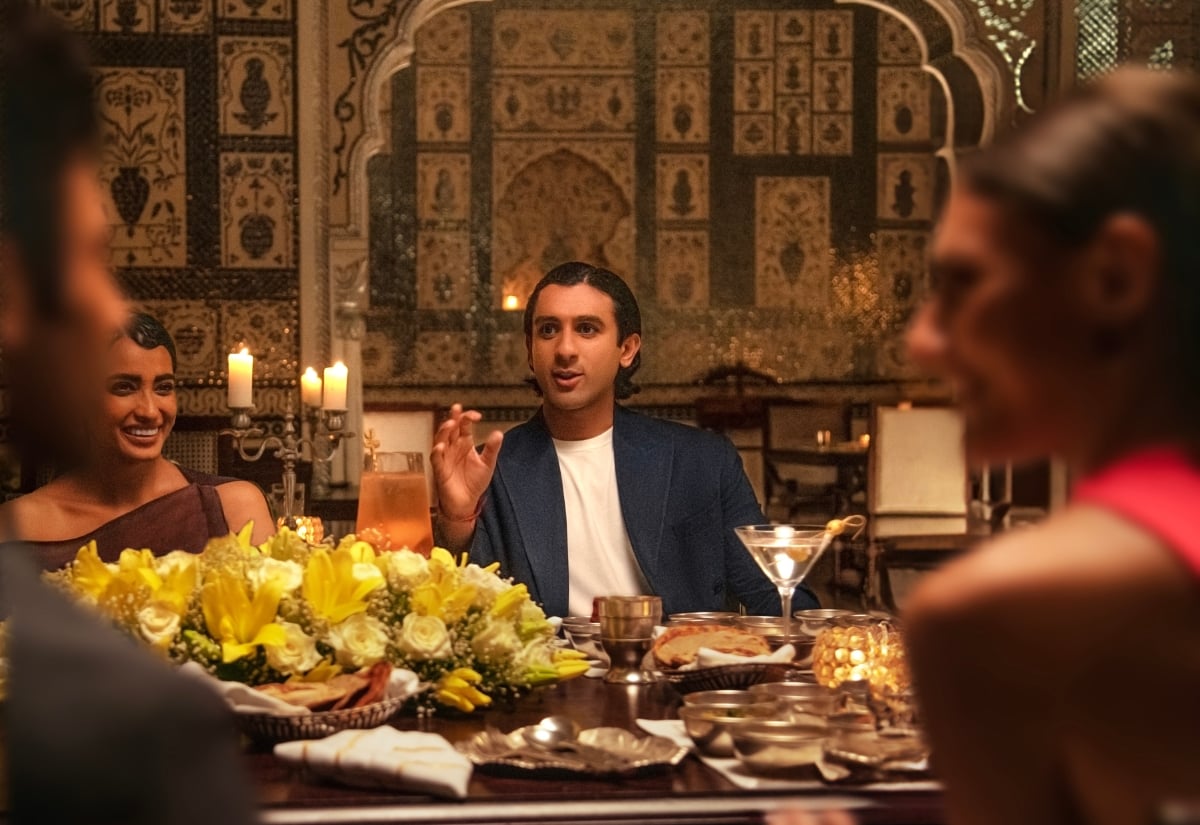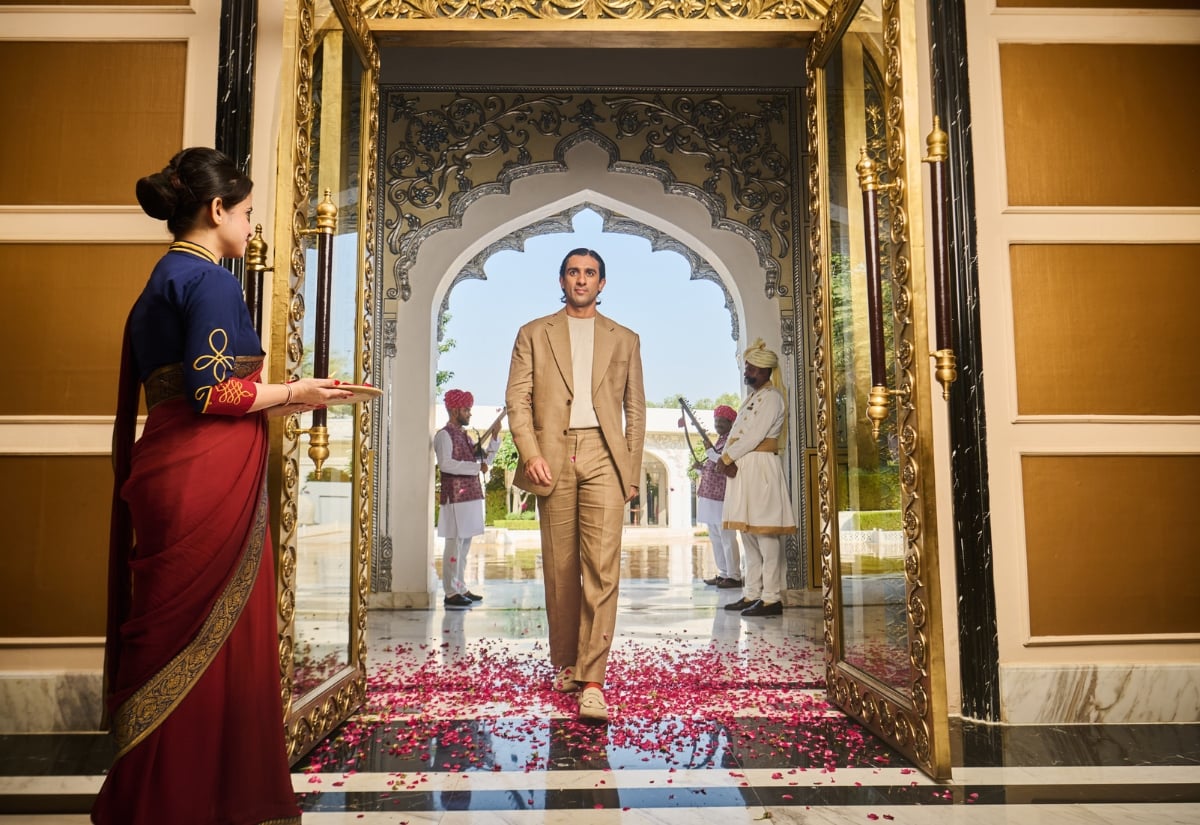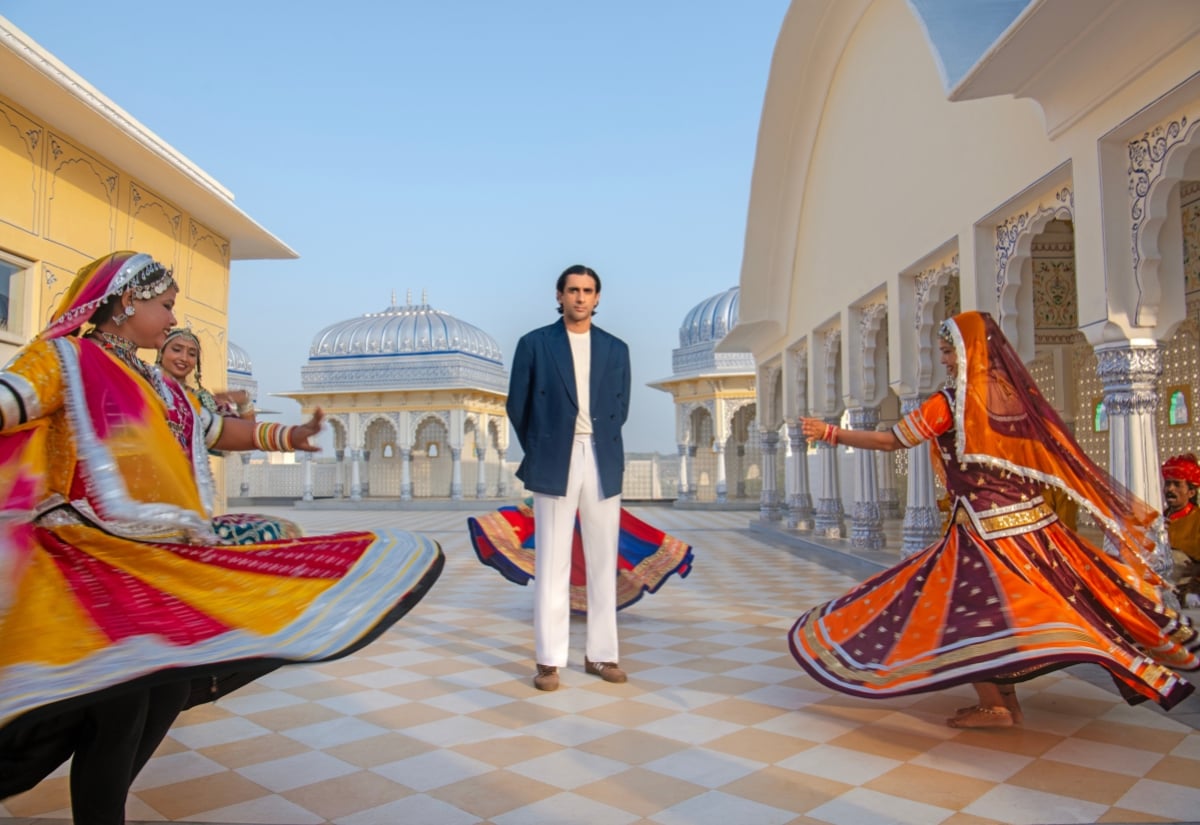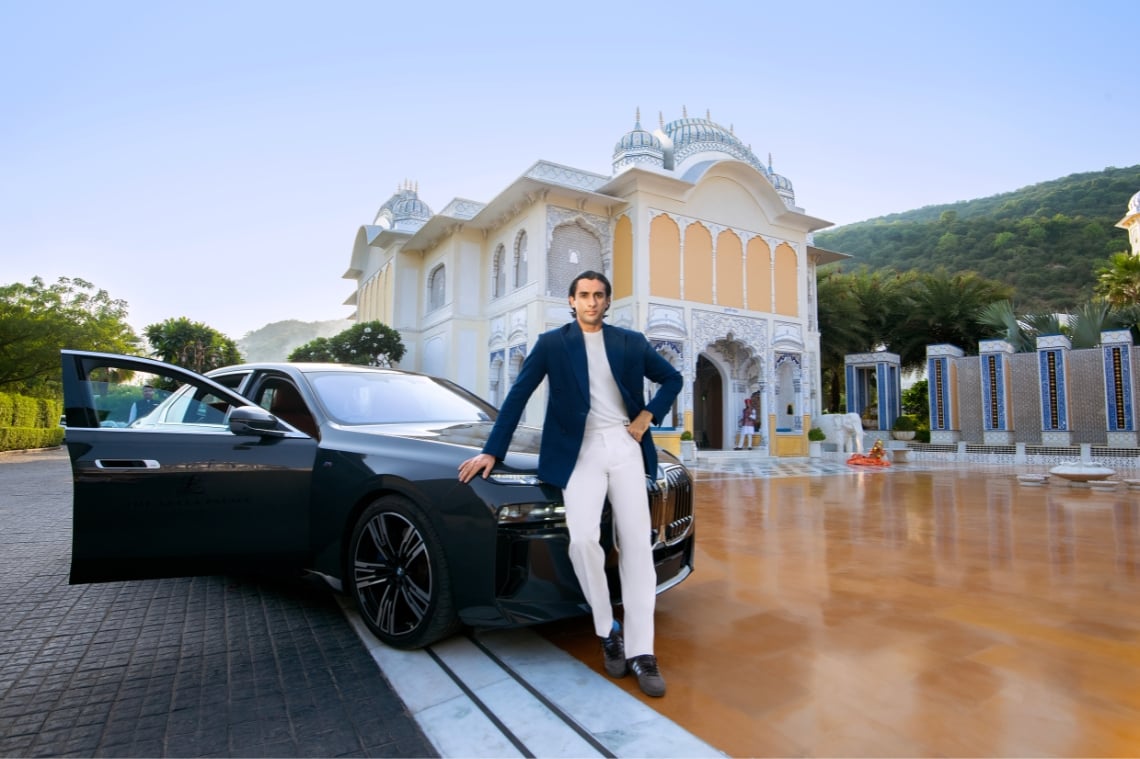Padmanabh Singh (fondly referred to as Pacho), the Maharaja of Jaipur, is not merely a custodian of a glorious past; he is a dynamic force bridging tradition and modernity, a polo aficionado, a patron of the arts, and a passionate advocate for preserving India’s rich cultural heritage. His leads a big life with varying facets — a royal legacy, sporting prowess, and a deep-seated commitment to social impact. From the meticulously preserved palaces of Jaipur to the exhilarating polo fields, his influence resonates across diverse spheres, embodying a unique blend of regal bearing and contemporary vision.

In this exclusive interview with Emirates Man, Maharaja Padmanabh Singh offers a rare glimpse into his world, sharing his insights on the importance of preserving India’s heritage, his hopes for the future of Indian luxury hospitality in partnership with The Leela, his enduring passion for polo, and his unwavering dedication to making a meaningful difference. He speaks candidly about the challenges and rewards of being a young royal in modern India, his personal style, and his vision for the future of Jaipur and its enduring legacy.
How do you see your role as an Icon of India by The Leela contributing to the promotion of Indian culture and heritage?
Being named an Icon of India by The Leela is a true honor and a wonderful opportunity to further my commitment to preserving and promoting India’s cultural legacy. The Leela and I share a deep passion for celebrating our heritage while presenting it in a way that resonates with today’s discerning global traveller. Through initiatives like Time Travel with The Leela, we are able to bridge India’s royal past with modern luxury, offering guests immersive experiences that bring our traditions to life.
The Leela’s focus on creating bespoke, heritage-driven journeys mirrors my own vision of making India’s rich culture accessible and relevant to the world. What sets The Leela apart is its ability to not only deliver India’s heritage but to do so through unique and personalized experiences that allow travellers to truly connect with our traditions in a contemporary setting. Whether through art, cuisine, or royal rituals, we both strive to offer a deep, meaningful connection to India’s legacy. This collaboration allows us to showcase the beauty of India’s past while making it part of the modern travel experience, ensuring that India’s vibrant heritage is celebrated and preserved for future generations.
What are your hopes for this collaboration and how do you envision it shaping the future of Indian luxury hospitality?
My hope for this collaboration with The Leela is to create a lasting impact by blending the rich traditions of India with the desires of today’s global traveller. The Leela is synonymous with ‘True Indian Luxury,’ offering a sophisticated fusion of heritage and modernity, and together, we aim to craft unforgettable, immersive experiences that go beyond typical luxury stays. Through initiatives like Time Travel with The Leela, we want to invite guests to truly experience the soul of India, while showcasing the timeless elegance of our culture in a way that resonates with contemporary sensibilities.
We are creating a space where heritage is not just admired but lived – where each interaction with India’s culture, be it through cuisine, art, or royal rituals, feels deeply authentic yet luxuriously modern. This collaboration will inspire a new generation of travellers to engage with India’s legacy in a more meaningful way, ensuring that our traditions continue to thrive and captivate the world.
How has your passion for polo shaped your life and career?
Polo is more than a game for me. It is my passion. The game has shaped my personality and my world view. Like every sport, polo requires dedication, determination, resilience, and discipline. These qualities are essential for success in the game as well as in life and polo has inculcated them within me. From a young age, polo taught me to dream big and believe in myself.

What are the challenges and rewards of being a young polo player in India?
In India, the challenges of being a polo player (young or veteran) are many. Perceived as an elite sport, polo has neither the support nor the infrastructure that other sports have here. Private clubs provide the grounds, proper horses are an expensive investment which restricts inclusivity in the sport, sponsors are limited and state support is nowhere close to what cricket or hockey or other sports get here. However, when it comes to rewards, the sheer thrill of the game and the camaraderie that is an essential part of this team sport more than make up for everything. Polo is a passion and friendships built on the Polo field are for life.
What steps are you taking to preserve and promote the rich cultural heritage of Jaipur and India?
It is a privilege for me that I am part of a lineage that is remembered for building and preserving the city of Jaipur. My ancestors not only built the city but also made major contributions in crafting its cultural and infrastructural fabric. As a custodian of that legacy, it is my constant endeavour to preserve that heritage through the management of the Maharaja Sawai Man Singh II Museum Trust and the Jaigarh Public Charitable Trust. Preserving the architectural heritage of the monuments that are landmarks of Jaipur is one of my most important missions in life. Promoting the art and culture of our country is another important agenda for me and I persevere to do so through programmes like the annual Heritage Workshops in traditional arts at the City Palace as well as initiatives like the newly launched contemporary art gallery – the Jaipur Centre for Art at the City Palace, the soon to be opened Sculpture Park at Jaigarh, the Jaigarh Heritage Festival celebrating the intangible heritage of Jaipur and India, and the Sawai Jaipur Awards that are constituted to recognise and celebrate excellence in various fields including heritage conservation, culture and the arts. With my sister, I am also working towards empowering the women of Rajasthan by skill building and training in the heritage arts and crafts of the state to preserve them and enable these women artisans to become self-reliant through PDKF, a foundation set up by my mother in 2013.
How can young people connect with Indian heritage and traditions in today’s world?
Our heritage, culture, arts, and traditions are an intrinsic part of the fabric of our lives in India. From our festivals to our food, our music, our architecture, our arts and crafts, and our fashion – everything is woven together in one cohesive, vibrant tapestry. Connecting our youth with it only requires an effort to create opportunities for education about and engagement with these aspects. The Leela beautifully captures this essence by offering modern travellers a chance to experience India’s rich heritage through immersive and luxurious stays. Time Travel with The Leela – a campaign that brings India’s cultural legacy to life, offers unique experiences that connect guests with the country’s history, art, and traditions. This commitment to celebrating India’s culture aligns with my own belief that true luxury is about connecting with the soul of the country, where heritage and hospitality come together in unforgettable ways.

What are your thoughts on the role of technology in preserving and promoting cultural heritage?
Technology has a major role to play here. Social media for one is an essential tool that can be used to share the stories of our history and heritage with the world. With new developments in technology coming up every day, we can recreate lost aspects of our history through AI and VFX. New techniques are helping us in the conservation of original architectural and artistic ideas that were not mapped when they were created hundreds of years ago.
What are your future plans and aspirations for yourself and the Jaipur royal family?
Plans are many and constantly evolving but the most important part of my vision and that of my family is to work towards preserving our heritage and making Jaipur a city that welcomes everyone to come and experience all that is best of India’s heritage treasures and modern innovations.
How do you envision the future of the Indian luxury hospitality industry?
The answer to this question lies in a deeper connection between heritage and contemporary luxury, where guests not only seek opulence, but also meaningful, immersive experiences driven by a seamless blend of heritage and hyper personalization. As the demand for tailored, authentic journeys grows, brands like The Leela are making a mark by seamlessly fusing India’s royal legacy with modern sensibilities. The true essence of luxury will be defined by hyper personalization – designing experiences that connect travellers with India’s rich traditions in a way that feels both authentic and modern. Guests are now looking for experiences that go beyond lavish accommodations. The focus will shift to creating bespoke journeys that immerse travellers in the culture and heritage of India while offering the comforts of the modern world. By offering personalized and curated experiences, the luxury hospitality industry will not only cater to today’s discerning travellers but also redefine world-class hospitality, preserving India’s rich traditions for future generations.
What advice would you give to young people who are passionate about preserving Indian culture and heritage?
Respect your heritage, learn from your history, engage with your culture and participate in its preservation. Our heritage is our greatest treasure and we are it’s custodians. It is our collective responsibility to preserve it for future generations.
What are your key philanthropic focuses, and how do you balance your royal duties with your social impact initiatives?
Philanthropy is a value that has been inculcated in me from childhood. Service to the nation and working for the greater good of many has been the calling for so many members of my family that it is second nature for me and my siblings. Our primary royal duty is service to our fellow citizens and it lies at the core of everything we do, from the museums and trusts we operate to the social impact work we are trying to do with PDKF to the heritage experiences we curate in order preserve these traditions for the people of Jaipur to participate in and become a part of.
What do you consider to be the most important qualities of a good leader?
A good leader is only as good as the team he or she leads. Being able to build a great team is an essential quality that any leader must have. Apart from this, I feel a good leader must have the ability to listen to different view points in order to weigh options in a balanced manner and take the best decisions. Finally, leadership is all about setting ambitious goals and taking decisive action.
How would you describe your personal style?
Simple, timeless, elegant.
What are your favorite fashion trends at the moment?
Old world elegance is more my fashion direction but as a sportsman I appreciate the contemporary trend of ensuring comfort in fashion and have great appreciation for fashion that pays homage to traditional techniques and crafts.
Are there any specific designers or brands you particularly admire?
US Polo Assn’s new line that I have co-created is one of my favourites right now, for obvious reasons. Aside from that I have great appreciation for young brands working in sustainable fashion.
How do you balance tradition and modernity in your fashion choices?
I keep it simple in my daily fashion choices, emphasizing on natural fabrics and well-tailored cuts and fits and lean towards traditional garment styles like the ‘Achkan’ and the ‘Bandh Gala’ for formal wear.
– For more on how to look smart and live smarter, follow Emirates Man on Facebook and Instagram
Images: Supplied











